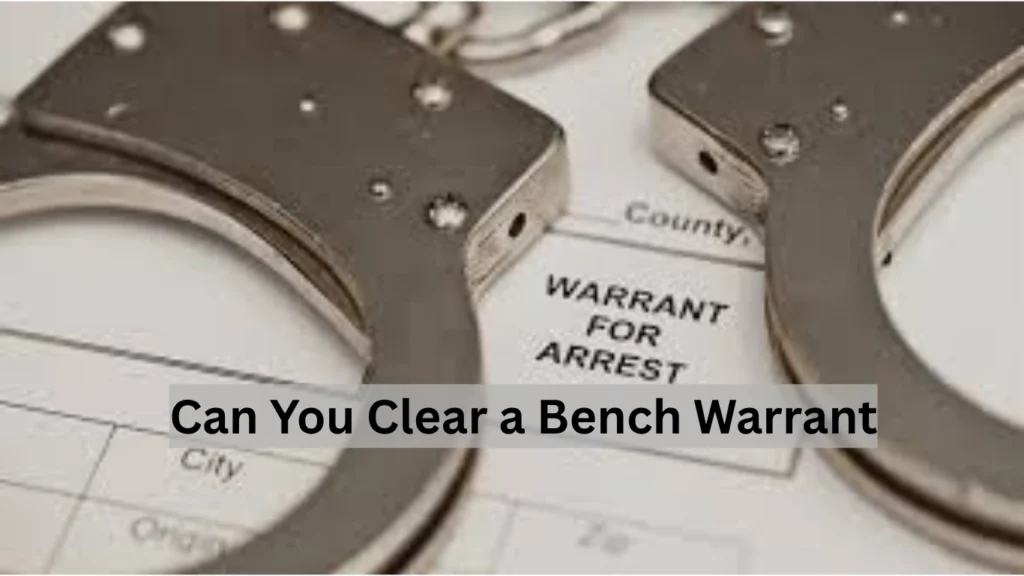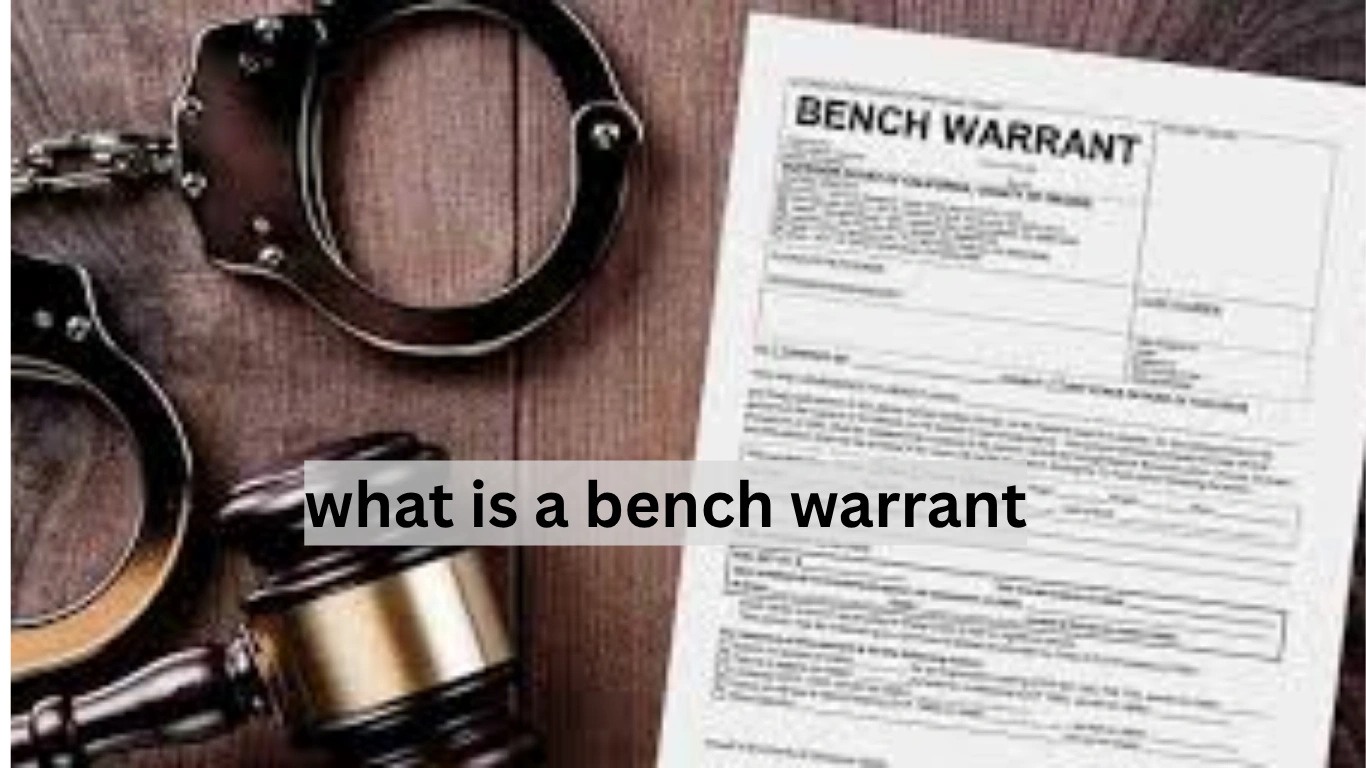What is a Bench Warrant Understanding the Legal Term and Its Consequences
A bench warrant is a legal order issued by a judge that commands law enforcement to arrest an individual and bring them to court. This type of warrant is typically issued when a person fails to appear in court as required. While it may sound similar to an arrest warrant, it serves a different purpose and is linked directly to courtroom proceedings rather than new criminal activity.
The Basics: What Is a Bench Warrant?
The term “bench warrant” gets its name from the “bench,” which refers to the judge’s seat in a courtroom. When someone disobeys a court order—often by missing a scheduled court appearance—the judge can issue this warrant from the bench. It signals to police officers that they have the authority to detain the person and bring them before the court.
Bench warrants are common in civil and criminal cases. In traffic violations, missing a court date can easily lead to one being issued. In more serious criminal cases, failing to comply with bail conditions can also result in a bench warrant. Understanding bench warrant lookup is essential to avoiding legal trouble.
How Does a Bench Warrant Differ from an Arrest Warrant?
Though both result in arrest, there are critical differences:
| Feature | Bench Warrant | Arrest Warrant |
|---|---|---|
| Issued by | Judge directly from the courtroom bench | Judge upon request from law enforcement |
| Trigger | Failure to appear in court | New criminal charges |
| Related to | Ongoing court case | New criminal investigation |
| Execution | Police can arrest you anytime | Usually executed in a targeted arrest |
| Common Situations | Missed court, unpaid fines, violation of bail | Theft, assault, or other crimes |
Understanding these differences clarifies what is a bench warrant and helps people know how serious it can be—even if it starts from something small like skipping a court date.
Common Reasons for Issuing a Bench Warrant
Bench warrants aren’t issued out of the blue. There are specific, traceable reasons:
- Missing a court date – the most common trigger.
- Failure to pay fines or fees – like traffic tickets or restitution.
- Not obeying court orders – such as ignoring community service or probation rules.
- Skipping jury duty – yes, this too can result in a bench warrant.
Each of these actions shows disrespect or disregard for court authority. Because of this, judges issue bench warrants to maintain the integrity of legal processes. Even something that seems small—like forgetting a court date—can escalate into an arrest.
What Happens After a Bench Warrant Is Issued?
Once a bench warrant is active, it enters into local and national law enforcement systems. That means:
- Police can arrest you on the spot, even during a routine traffic stop.
- The warrant stays active until resolved, either by arrest or voluntary court appearance.
- You may be held in jail, especially if the court sees your absence as willful.
- Additional charges or fines may apply, making the case worse than it began.
It’s crucial to take action as soon as you find out there’s a warrant against you. Doing nothing can cause the situation to spiral. If you’re unsure, you can check your local court or online legal database to see if you have one.
Can You Clear a Bench Warrant?

The good news is that a bench warrant can often be resolved without jail time, especially if the offense was minor. But time is critical. The longer you wait, the harder it becomes. In many areas, courts offer warrant recall hearings. This allows you to explain your absence and ask the judge to lift the warrant voluntarily. However, never ignore a bench warrant it won’t go away on its own.
Real-World Example
Let’s say John received a speeding ticket and was ordered to appear in traffic court. He forgot the date. The judge waited, but when John didn’t show up, a bench warrant was issued. A week later, police stopped him for a broken tail light and ran his ID. The warrant popped up. John was arrested and taken to jail—his five-minute mistake cost him a night behind bars and additional court fees.
This example shows why knowing court warrant arrest is more than just legal knowledge—it’s about protecting your future.
How to Avoid Getting a Bench Warrant
Prevention is the best approach. To avoid this legal headache:
- Always attend scheduled court hearings.
- Set reminders for court appearances.
- Communicate with the court if you can’t attend.
- Fulfill all court orders completely and on time.
Being proactive shows the court you take its orders seriously. It also avoids unnecessary legal consequences and protects your record.
Is a Bench Warrant a Criminal Record?
While the warrant itself isn’t a conviction, it can show up in background checks. That might affect your job opportunities, housing applications, or travel permissions. Employers may see it as a red flag that you don’t follow through on obligations. If you handle the matter swiftly, it may not stay on your record permanently. But the longer it remains unresolved, the more damage it can do to your public and legal reputation.
Conculsion:
So, what is a bench warrant? It’s a judge’s order that empowers law enforcement to bring someone back into court after they’ve ignored or failed to meet a legal obligation. Although it may begin with something small, such as a missed hearing, the consequences can be severe if left unaddressed. Understanding the meaning and implications of a bench warrant can help you make smarter decisions in dealing with the legal system. If you ever suspect one may be out for you, don’t panic but don’t ignore it either. Act quickly, seek legal advice, and resolve the issue before it grows into a larger problem.
FAQs:
What is a bench warrant in simple terms?
A bench warrant is a court order that allows the police to arrest someone who didn’t show up for their court date or disobeyed a judge’s order.
Will a bench warrant show up on a background check?
Yes, a bench warrant can appear in background checks, especially if it’s still active. It may affect job or housing applications.
Can you go to jail for a bench warrant?
Yes, if you’re arrested under a bench warrant, you can be taken to jail until you appear before a judge or post bail.
How do I know if I have a bench warrant?
You can check with your local court clerk’s office or search online court databases. A lawyer can also help you confirm it.
Can a lawyer remove a bench warrant?
Yes, an attorney can often file a motion to quash or recall the warrant, especially if you missed court by accident.







